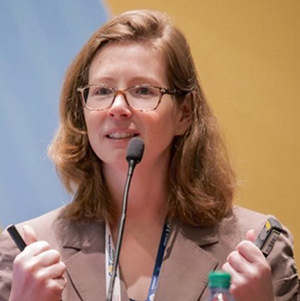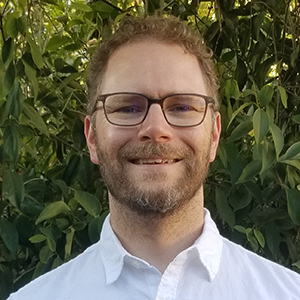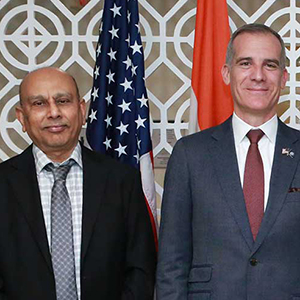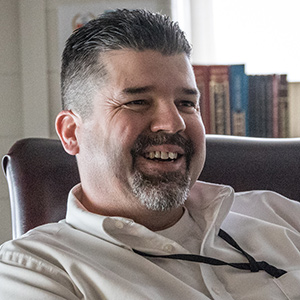Seeking to strengthen research into the health effects of air pollution and other environmental exposures, NIEHS partnered with India’s Council of Scientific and Industrial Research (CSIR) in a new memorandum of understanding (MOU). CSIR Director General Shekhar Mande, Ph.D., signed the document July 7. It was previously signed by NIEHS and National Toxicology Program Director Linda Birnbaum, Ph.D.
“Air pollution threatens us all, and is a problem too big for one institute or even one country to solve on its own,” said Birnbaum. “By sharing our resources and expertise, NIEHS and CSIR will be able to accelerate efforts to understand this growing public health issue.”
“After almost three years of discussions, I am pleased that we have established this formal relationship to address air pollution,” said NIEHS Health Scientist Administrator Sri Nadadur, Ph.D. “This now opens up the opportunity to identify areas of research for immediate and long-term exchanges of expertise and training between our respective institutions.”
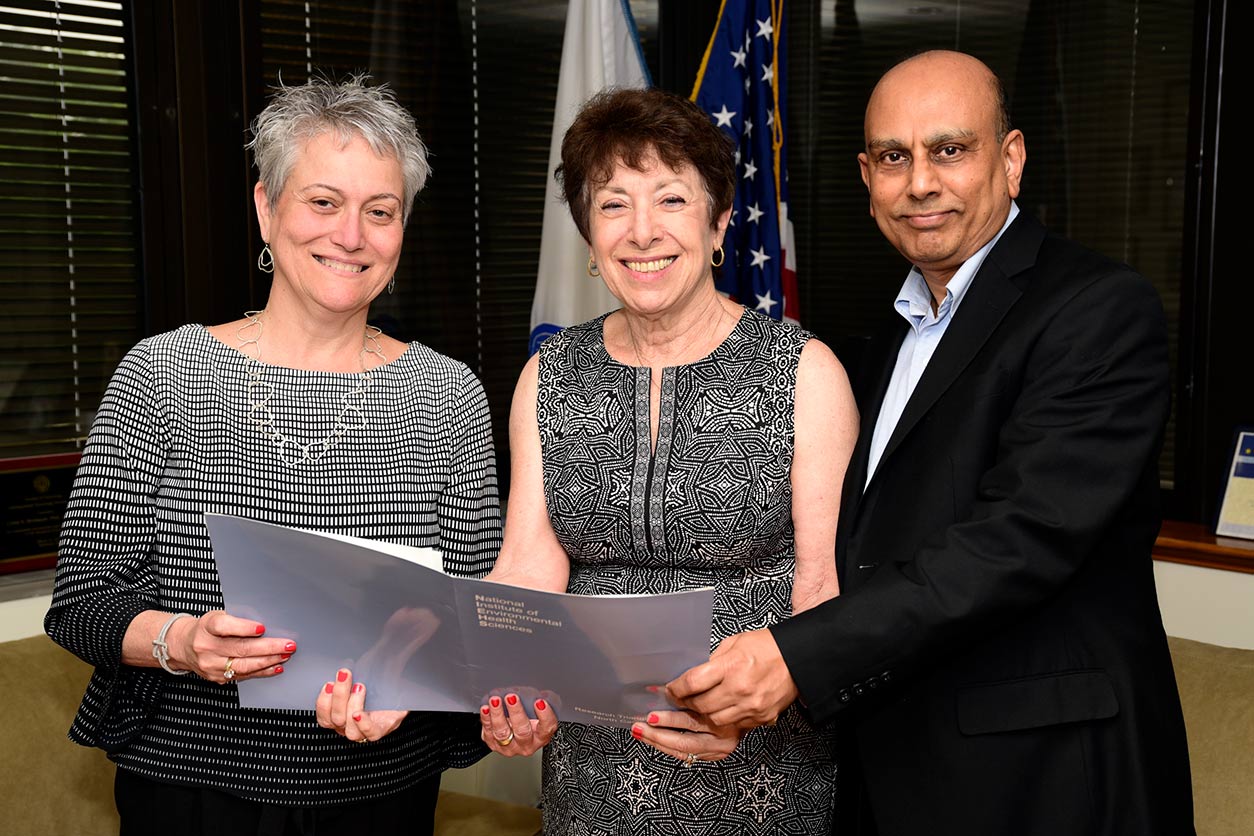 From right, Nadadur, Birnbaum, and Gwen Collman, Ph.D., director of the NIEHS Division of Extramural Research and Training. (Photo courtesy of Steve McCaw)
From right, Nadadur, Birnbaum, and Gwen Collman, Ph.D., director of the NIEHS Division of Extramural Research and Training. (Photo courtesy of Steve McCaw)A growing partnership
Air pollution is a major health concern in countries across the globe. According to the Centre for Science and Environment in India, air pollution kills 100,000 children under age five every year in India.
During his 90-day assignment as an Embassy Science Fellow in 2015, at the U.S. Embassy in New Delhi, Nadadur initiated the relationship with CSIR. He focused on research and bilateral consultations on urban air quality. He kept the discussion going long after returning stateside, establishing a network of collaborations among academic and government scientists to address air quality health issues in India.
The MOU enables NIEHS and CSIR to further develop their growing partnership with a focus on air pollution and environmental health sciences. Potential collaborations include fundamental, mechanistic, and applied research ranging from development of technologies for exposure assessment to biomarker identification in population studies.
“I am happy that through this MOU, CSIR [in] India and NIEHS [in the] USA have bonded for research collaborations in environmental health sciences,” Mande said. “I am confident that the collaboration would lead to development of technologies that would benefit the masses. My best wishes for the successful execution of this MOU and further strengthening of CSIR – NIEHS linkage for fruitful collaborations.”
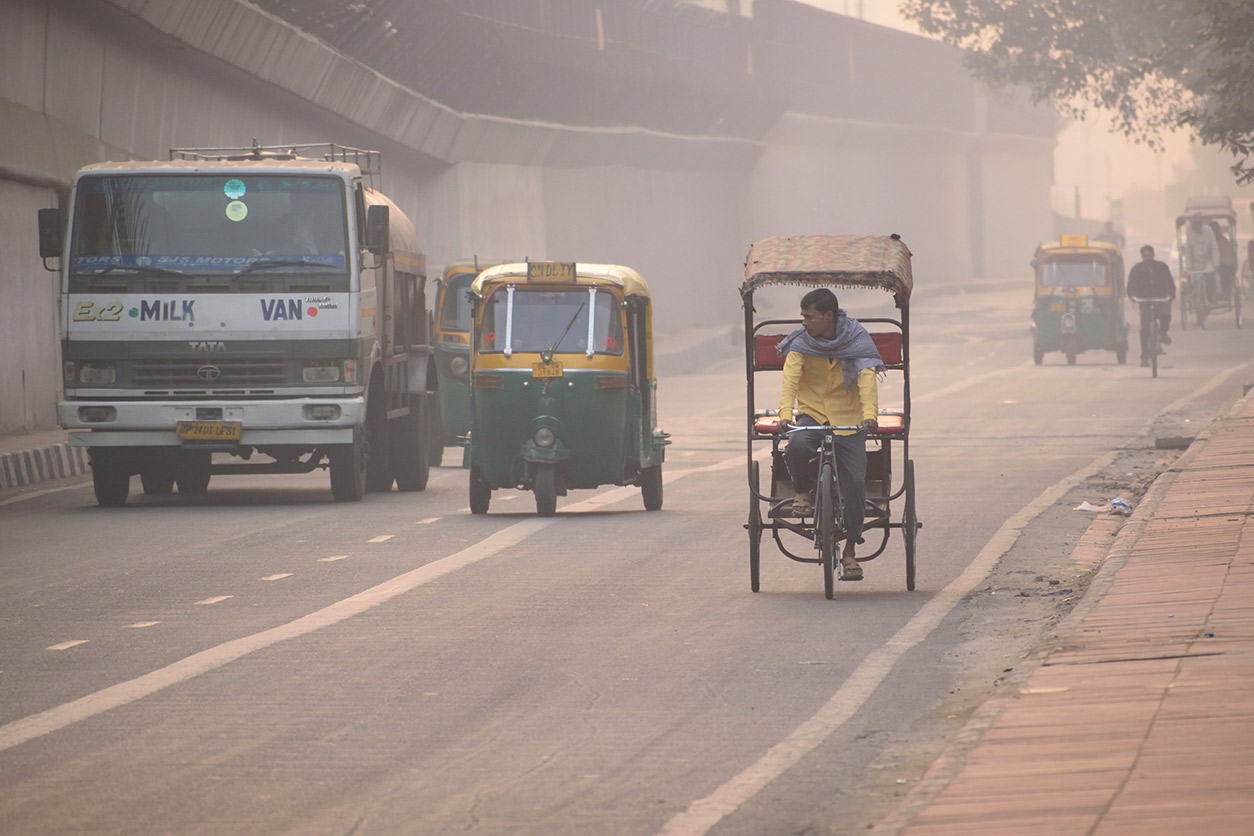 The air in Delhi, shown above on Nov. 21, 2017, routinely exceeds health standards. (Photo courtesy of Saurav022 / Shutterstock.com)
The air in Delhi, shown above on Nov. 21, 2017, routinely exceeds health standards. (Photo courtesy of Saurav022 / Shutterstock.com)The fine print
The MOU includes the following activities.
- Exchange of scientists, research scholars, and specialists for research, training, consultation, and exchange of expertise.
- Exchange of scientific and technical information and documentation.
- Organization of bilateral scientific and technical seminars, workshops, conferences, and training courses.
- Collaborative identification of scientific and technical problems and implementation of a collaborative research program on air pollution, as well as other exposures and health outcomes.
- Collaborative studies related to developing technological processes, procedures, and products.
Nadadur says now that the MOU is in place, he will explore how NIEHS can help with ongoing air pollution epidemiological studies in New Delhi and other areas with poor air quality. Possibilities include integrating personal exposure assessment, as well as clinical monitoring of asthma and other pulmonary effects of air pollution in children.
Activities under this MOU will be monitored by a joint working group of individuals from each participating organization. Similar agreements have been reached in the past through MOUs between NIEHS and research entities in Japan and China.
(Marla Broadfoot, Ph.D., is a contract writer for the NIEHS Office of Communications and Public Liaison.)






